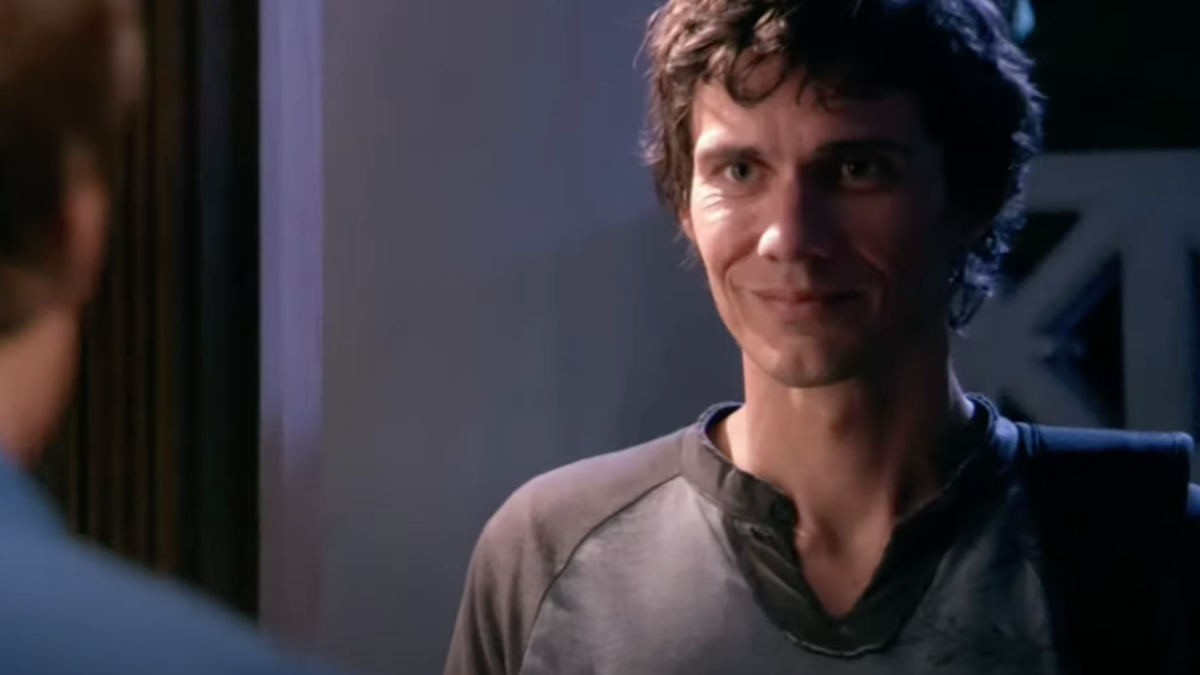
This article contains spoilers for Dexter season 1.
Dexter Morgan (Michael C. Hall) is the undisputed superstar of his titular crime drama, Dexter (just released on Netflix this week), but the popular serial killer thriller from the 2000s wouldn’t have been the classic it is now deemed without the help of several different fascinating villains. The tug-of-war between Dexter and his rivals throughout the eight seasons of the Showtime series always presented audiences with a unique lens through which to view the protagonist.
Dexter is a “moral killer” if such an oxymoron exists. He only kills people who deserve it, adhering strictly to his late father’s orders as a method to contain his madness and allow him a way to blend into society. The overarching antagonist of each season often throws all such rules out the window, a tactic that gives the viewers an easy cop-out when trying to choose who to root for.
In this way, Dexter was one of the ultimate antiheroes during a television era filled to the brim with them. People knew he was a bad dude, but it felt like there were extra layers beyond the surface. Each villain that Dexter opposed pulled back the curtain on his past and informed his decisions and crime ethics as the seasons wore on.
While there are a ton of great villains later in the show that lay claim to being the best big bad in Miami, the Ice Truck Killer, a.k.a Brian Moser (Christian Camargo), stakes his claim right out of the gate as the ultimate Dexter antagonist. No villain is more reflective of Dexter’s own morality while also depicting realistic serial killer tendencies than Moser.
The complexity of the killer dynamics between Dexter and the Ice Truck Killer built the sturdy foundation that the show benefited from for at least four more seasons henceforth. Dexter and Brian are mirror images of one another because they are biological brothers. Both surviving their slain mother’s demise in a shipping container in their youths, Dexter learns of Brian’s life and how his brother manages his trauma differently than him.
Brian doesn’t have a lot of rules. In fact, the Ice Truck Killer preys on the vulnerable and ruthlessly goes after Dexter’s sister, Debra (Jennifer Carpenter), in a psychotic attempt to glean information about Dexter and force him over to his side. The writers expertly unveil each of these bits of information about the Ice Truck Killer through his creepy interactions while fake-dating Debra and the unique chemistry between Hall and Camargo.
Instead of trying to resist the urge to kill innocent victims like Dexter does, the Ice Truck Killer leverages his knowledge of Dexter’s past in an attempt to feed on his vulnerability. This cruel tactic represents Moser’s symbolization of Dexter’s darkest side, or what could have happened to the blood spatter analyst without loving family members such as Debra to fight for.
When Moser kidnaps Debra at the end of the season and asks Dexter to kill her with him, it gives our sympathetic antihero a choice that could have destroyed the show, but instead catapulted it to ultimate success. Brian is the only living biological relative left alive. Debra is an adoptive sister, but one who loves him more than a DNA sibling ever could. Brian tries to placate Dexter’s need for family and bloodshed without realizing that he woke up the part of Dexter that makes him different.
Dexter chooses Debra because she’s the good that’s still left in him. Brian is a bottomless pit of evil. He feeds on more death and destruction. His pursuit of Dexter as his Robin to his Batman represents the utter moral depravity of both men’s situations. Their beginnings were the same, but the path to redemption begins only for Dexter once they meet. Without the Ice Truck Killer, Dexter would have never been able to see how he differs from someone even worse than him.
Does this make the Ice Truck Killer a greater plot device than character? Many fans would argue Brian is not nearly as compelling as an individual villain as the Trinity Killer from season 4 (John Lithgow). Trinity’s intimidating storyline is well-written but elevated almost entirely by Lithgow’s mind-blowing brilliance. A rewatch of Dexter’s most popular season should suffice as evidence that Trinity doesn’t serve as grand a purpose as the Ice Truck Killer, even if the acting embodying his evil tricks us into thinking so.
The benefit of a great villain should always be to educate the audience on the skeleton of the hero. The Ice Truck Killer succeeds more than any other villain in the series in this all-important qualifier, allowing viewers to accept Dexter as someone with a soul because Brian doesn’t have one. In a show with so many despicable beings, the Ice Truck Killer redeems Dexter’s dark passenger the most, and that’s the only thing that really matters.
All eight seasons of Dexter are available to stream on Netflix now.
The post The Ice Truck Killer Remains the Best Dexter Villain appeared first on Den of Geek.











